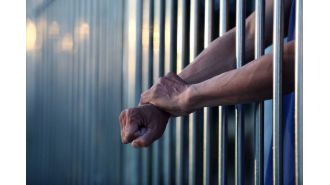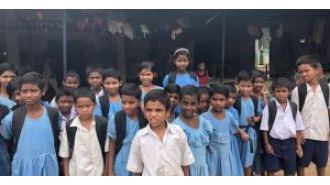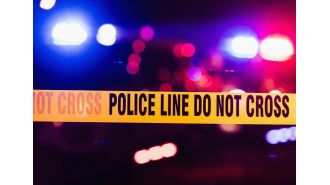Haiti remains in political turmoil despite the resignation of the Prime Minister.
Haitians must be recognized as the driving force in shaping their own future, rather than being influenced by external forces.

There has been a lot of turmoil in Haiti lately, with Prime Minister Ariel Henry resigning on March 12th. Unfortunately, the issues that have caused instability in the country are still present. According to NBC News, there are multiple factors at play, including the 2010 earthquake that caused a humanitarian crisis. The transitional council, which was created with the help of the United States and CARICOM, has been criticized as part of the problem. Many people in Haiti, both those who live there and those who work in humanitarian efforts, believe that the future of the country should be determined by the Haitian people themselves, rather than outside forces.
Greg Beckett, an associate professor of anthropology at Western University in Canada, explained to NBC News that the current situation in Haiti has been building since the earthquake of 2010. This is also supported by reporting from Vox, which interviewed humanitarian workers in Haiti who share this perspective. It's worth noting that despite being widely unpopular and never officially sworn in, Henry had the backing of the United States, Canada, and France as the legitimate leader of Haiti. Vox suggests that instead of propping up Henry, these countries could have collaborated with Haitian-led groups to find a more democratic solution for the country's future.
Jake Johnston, a senior research associate at the Center for Economic Policy and Research, also shared his insights with Vox. He believes that the issues in Haiti, such as the presence of armed gangs, are all symptoms of a broken social contract between the government and its people. Johnston emphasizes that it's the Haitian people themselves who are actively fighting for their own futures, and they should be at the forefront of any decisions made for the country.
As reported by NBC News, the gangs in Haiti have become increasingly powerful since the assassination of President Jovenel Möise in 2021. They are closely tied to the political class in the country and have been responsible for a rise in violence, including killings, kidnappings, and rapes. Beckett notes that the past two months have been the most violent since the crisis began, with thousands of people falling victim to these crimes.
Jemima Pierre, a Haitian scholar and professor at the University of British Columbia, believes that foreign intervention is not the answer to solving Haiti's problems. She explains to NBC News that over the past 20 years, the Haitian state has been constantly dismantled. Pierre also criticizes the proposed UN peacekeeping force, which was supposed to be led by Kenya but was declared unconstitutional by the country's courts. She questions why Haiti is only seen as deserving of military intervention instead of things like education and reparations for the cholera brought in by the UN.
Vox also raises concerns about how the gangs in Haiti might react to the transitional council and the potential for outside actors to manipulate the country's future. Jimmy Chérizier, the leader of one of Haiti's main gangs, expressed his doubts to the Associated Press, saying that the Haitian people know what they need and will take control of their own destiny. He questions why they would accept a council proposed by the same outside actors who have historically abused Haiti and its people. Ultimately, the Haitian people will decide who governs them.










